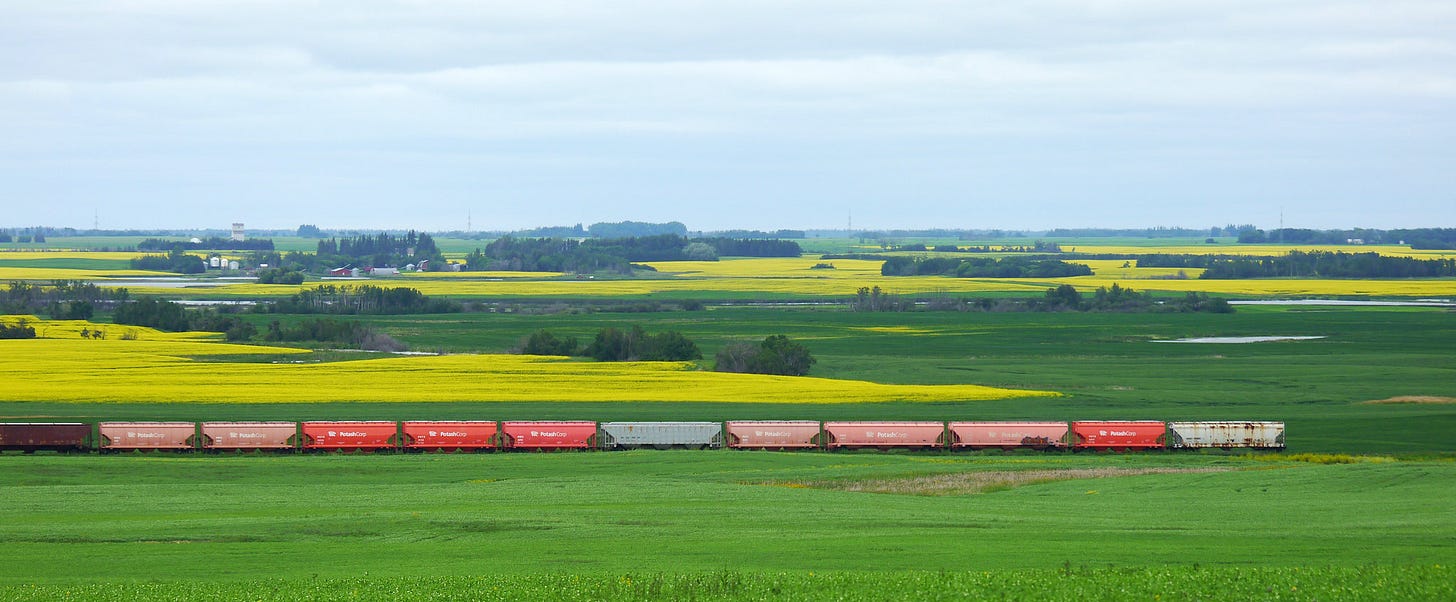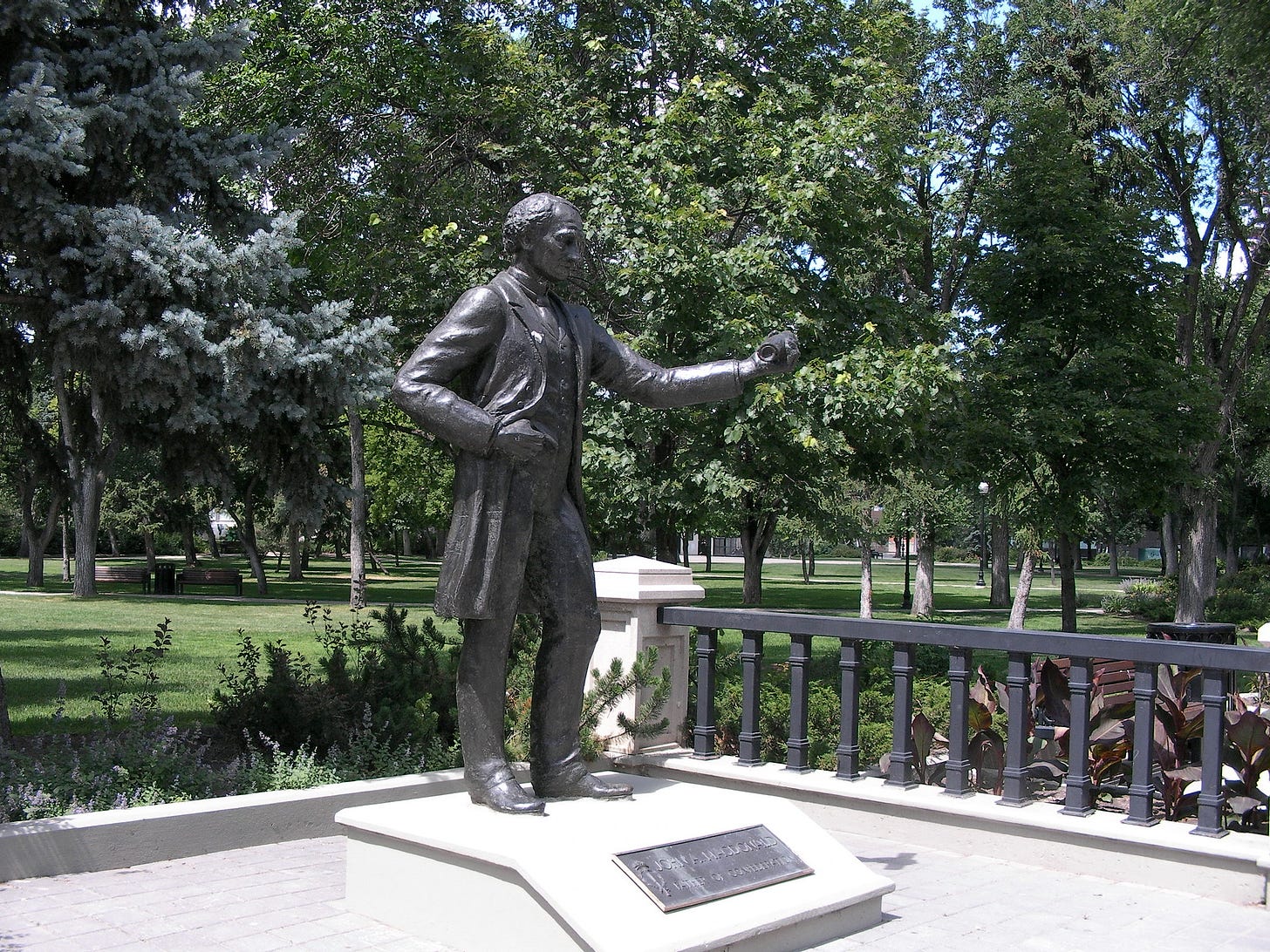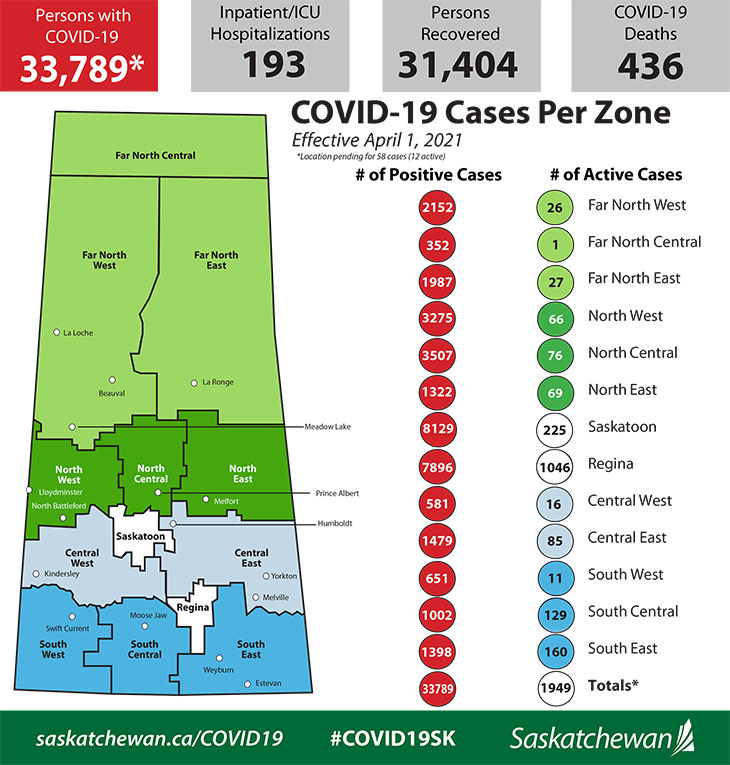Welcome back to Dispatches from the Left! It’s Good Friday but what’s good, Friday? We’re more than a year into the pandemic and for many in the province, things look bleaker than ever. People are rapid-cycling between grief and rage, and yet there’s little outlet and even less acknowledgement from the powers that be that we are experiencing widespread and collective trauma. Nevertheless, Sask Dispatch is here to grieve and rage with you, with a roundup of some of the things that have been happening around the province over the past two weeks.
Kristi via Flickr
As always, if you have any feedback, reach out to sara@briarpatchmagazine.com. We love to hear from you!
Dear John, it’s not us, it’s you
“History” suffered a grievous blow on Wednesday when Regina city council voted to remove the seven foot bronze John A. MacDonald statue from Victoria Park, as well as change the name of Dewdney Pool - named after renowned racist and prairie-basher Edgar Dewdney - to Buffalo Meadows Pool. Of the more than one dozen members of the public who spoke on the removal of the statue, only two came out in favour of leaving the towering hunk of bronze where it is. Both cited “history” as the reason for leaving the monument - which was erected three quarters of a century after Canada’s first PM died - in place, as though the statue were standing around giving lectures on the subject of John A.’s genocidal legacy. Interestingly, both of these defenders seemed to take a dim view of what history actually is, with one speaker arguing that residential schools and the starvation genocide of Plains people were not “really” genocide and that residential schools were a “net positive” for Indigenous people. When Ward 1 councilor Cheryl Stadnichuk asked the delegate (and self-declared historian) if he had read James Daschuk’s book Clearing the Plains, the Herodotus of the Queen City said that he hadn’t, but he had read reviews of the book and concluded it was biased. Both of the objectors also mentioned not holding historical figures to the standards of today. There are two problems with that argument. The first is that MacDonald’s beliefs were considered objectionable EVEN IN HIS TIME, EVEN AMONG CONSERVATIVES. The second is that, yes, we can hold historical figures to the standards of today. Oppressed people have always known that they were being oppressed. There has always been resistance to oppression. It wasn’t okay to commit starvation genocide 150 years ago, and it’s not okay today. Period, end of story.
Rural History and Culture Association of Saskatchewan
Despite the large number of delegates who spoke in favour of removing the statue, and the city’s own report which concluded that the monument represents a “harmful legacy,” the vote was not unanimous. Four councilors - Hawkins, Findura, Shaw, and Bresciani - voted that it should remain in place, and their reasons for doing so were shameful. Findura, Hawkins, and Bresciani all claimed a greater need for public consultations, which apparently meant “we need to hear from more white people,” since the city had already consulted with Indigenous knowledge keepers, artists, academics, and other local leaders for the legacy review that found the statue is a site of harm. (Council meetings, like the Wednesday meeting, where the public can make statements about topics under discussion, are also public consultations, which someone should explain to Cllrs Hawkins, Findura, and Bresciani.) It’s also important to note that white people’s opinions on the statue don’t *really* matter here. They’re welcome to (and did!) express their feelings about the monument, but what they have to say carries little weight in comparison to the feelings of those who are still living with the effects of MacDonald’s legacy.
Five Things to do with Your John A. MacDonald Statue:
Are you a city with a troublesome statue of a genocidal maniac? Allow us to present five suggestions for what you can do with it!
Immerse it in the bottom of your local lake. Give John A. a second life as an aquatic ecosystem!
Melt it down into 100 smaller statues of Louis Riel, to be placed around the province in defiance of white supremacy.
Two words: tetherball pole.
Build community with a public toppling!
Cut open his head and make a bird bath.
Scott Moe hates you, redux
The premier’s indifference to the lives of Saskatchewan people has only grown more obvious as variants of concern explode across the province, with Scott Moe refusing to implement stricter regulations. On Tuesday Moe said that tighter restrictions were “nothing more than a stopgap to buy us time until we get the majority of Saskatchewan residents vaccinated.” And Moe is RIGHT. It IS a stopgap. But it’s one the province SHOULD BE TAKING. People are dying. Younger people are getting much sicker, and many of them will face months, if not years of recovery. Some may be left with lifelong problems. In a horrible deja vu, schools are moving to remote learning, yet parents are being given no grace from their employers. We are being made to live alongside death and no place has been made to grieve or mourn or catch our breath. People are angry, and they should be.
Saskatchewan Health Authority
Moe’s approach to the pandemic has always been about taking individual responsibility for this social problem. It’s an approach that has led to needless death and suffering. It’s also had horrific effects on the economy, and in particular the lives and livelihoods of those who work in the service industry. Brief shutdowns have put unbearable strain on restaurants while not doing enough to curb the virus. Last year, our sister publication Briarpatch published this piece by Daniel Sarah Karasik about the need to suppress the virus - rather than flatten the curve. Karasik called the failure to completely suppress the virus - as Vietnam, Taiwan, China, Hong Kong, New Zealand, and Australia have done - “murderous abandonment” of vulnerable people. Murderous seems the right word to use to describe the Sask Party government’s approach to COVID-19. Hundreds of people have died needlessly and thousands more have been sickened, while the premier callously dismisses their lives. With Regina existing as a variant hotspot not only in Canada, but possibly in North America and the world at large, it is impossible to imagine how the province could have done worse. It’s important to remember that this was not inevitable. There are people to blame. Scott Moe is one of them.
Everyone’s a loser in carbon tax battle
After a years long fight costing over half a million dollars in legal fees alone, the Saskatchewan government has lost its fight against the federal carbon tax. On March 25, the Supreme Court ruled that the existential threat of climate change is serious enough that Ottawa is within its rights to compel the provinces to set a price on carbon, whether they like it or not. And while the decision, which was split 6-3, is more welcome than if it had gone the other way, it is, in a sense, a pyrrhic victory.
Putting a price on carbon is not going to put the brakes on climate change. But for the last two and a half years, much of the political discourse on the climate crisis in Canada has centred on this one, relatively toothless, policy. Carbon pricing isn’t actually a phase out of oil and gas. It doesn’t create green jobs. It isn’t climate justice. As James Wilt noted in this 2018 piece for Briarpatch, the very fact that companies like Exxon support a carbon tax makes the efficacy of the proposal seem dubious indeed. And while people have been arguing for or against the carbon tax, other opportunities for justice have been passing us by. We have wasted years arguing about a policy that is, at best, a thing that can be done.
Eagleclaw Bunnie
Perhaps most nauseating was the Saskatchewan NDP’s response to the Supreme Court’s ruling. Solidifying their move to the right, the official opposition issued a whiny, inexplicably italicized, statement, claiming, among other things, that “Trudeau’s economy-wide carbon tax will continue to take more from the people of Saskatchewan than they get back, with people living in rural and remote areas being most affected.” The statement isn’t true - according to a federal report, Saskatchewan received more in rebates than we paid in carbon pricing - and it served to further alienate people in the province who are crying out for a party that will actually take a real stand against climate change and the inequities it creates. At the end of the day, we’ve all lost.
Stay tuned!
Sask Dispatch and Briarpatch will be launching some solutions journalism workshops next week along with a call for pitches, so watch our social media @saskdispatch on Twitter and Facebook so you don’t miss it!
Saskatchewan needs more independent journalism. But without the backing of corporations like Postmedia, we rely on your support to keep producing high-quality journalism that challenges the mainstream media consensus. Donate now to help us sustain and expand our work.





